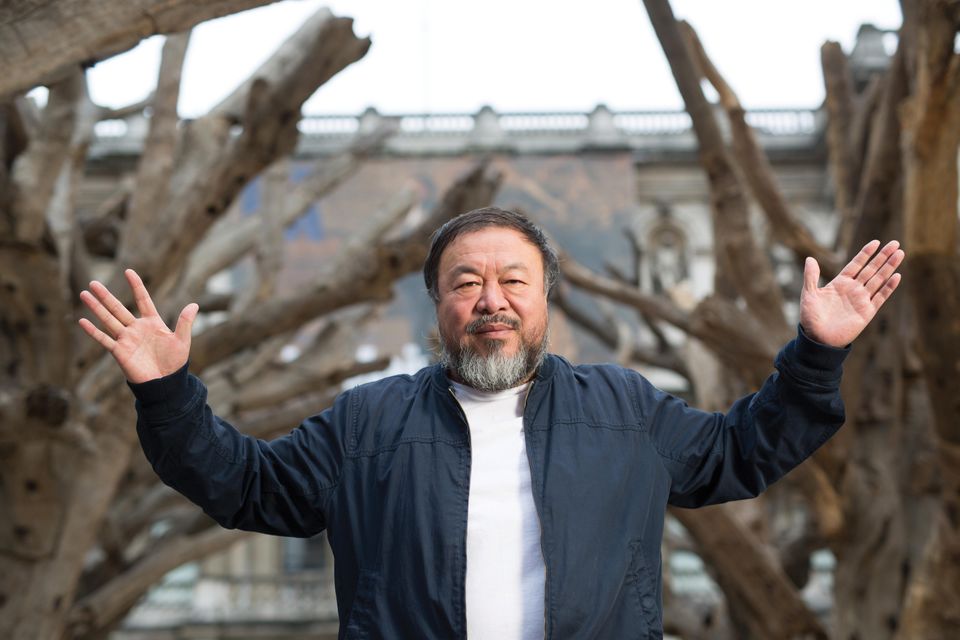Ai Weiwei was born in 1957 in Beijing. Shortly afterward, his father, the poet Ai Qing, was sent to a labor camp as an enemy of the revolution; the family lived in exile, mostly in the remote Xinjiang region, until 1976. Ai attended the Beijing Film Academy from 1978 through 1981, after which he relocated to the United States, settling in New York and briefly attending Parsons School of Design. In 1993 he returned to China, where he helped establish Beijing East Village, a community of experimental artists. Ai’s practice, which encompasses architecture, Conceptual art, curating, installation, and photography, is driven by the artist’s social activism and is often critical of the Chinese government.
Ai uses art as a means of confronting the sociopolitical system in China. His recurrent manipulations of Chinese cultural artifacts juxtapose the materiality and tradition of the country’s imperial history with symbols of the current phase of its modernization. This can be seen in Han-Dynasty Urn with Coca-Cola Logo (1994), in which the soft drink company’s logo sprawls across a piece of antique Chinese pottery. Ai has long maintained an active online presence, using a blog as the platform for his Sichuan Earthquake Names Project (2009), which listed the names of students killed in the 2008 Sichuan earthquake. The project was a response to the government’s concealment of the death toll of the disaster, and blamed the high figure on irresponsible building practices. Ai also commemorated the students killed in the earthquake in Remembering (2009), an installation of nine thousand children’s backpacks on the facade of the Haus der Kunst, Munich. During and after this project, Ai experienced censorship from the Chinese government, which eventually shut down his blog. S.A.C.R.E.D. (2013), a series of dioramas exhibited at the 2013 Venice Biennale, depicts the artist’s 81-day detention in 2011, after he was found guilty on charges of tax evasion that are widely thought to have been politically motivated. Despite being prohibited from traveling outside of China or engaging in public speech, Ai continues to create works that openly criticize the Chinese Communist leadership and advocate democracy and freedom of expression.
Ai is the recipient of numerous awards and recognitions, including the Chinese Contemporary Art Award (2008); the Skowhegan Medal (2011); Honorary Academician at the Royal Academy of Arts, London (2011); and the Václav Havel Prize for Creative Dissent (2012). His work has been the subject of numerous solo exhibitions at venues including the Mori Art Museum, Tokyo (2009); Tate Modern, London (2010); Taipei Fine Art Museum (2011); Asia Society, New York (2011); Hirshhorn Museum and Sculpture Garden, Washington D.C. (2012); and Indianapolis Museum of Art (2013). Ai’s group shows include those at the Museum of Modern Art, San Francisco (2008); Museum für moderne Kunst, Frankfurt (2010); and Museum of Modern Art, New York (2011, 2012). His work has also been shown at Documenta, Kassel, Germany (2007); the São Paulo Biennial (2010); Venice Architecture Biennale (2010); and Venice Biennale (2013). Ai lives and works in Beijing.

